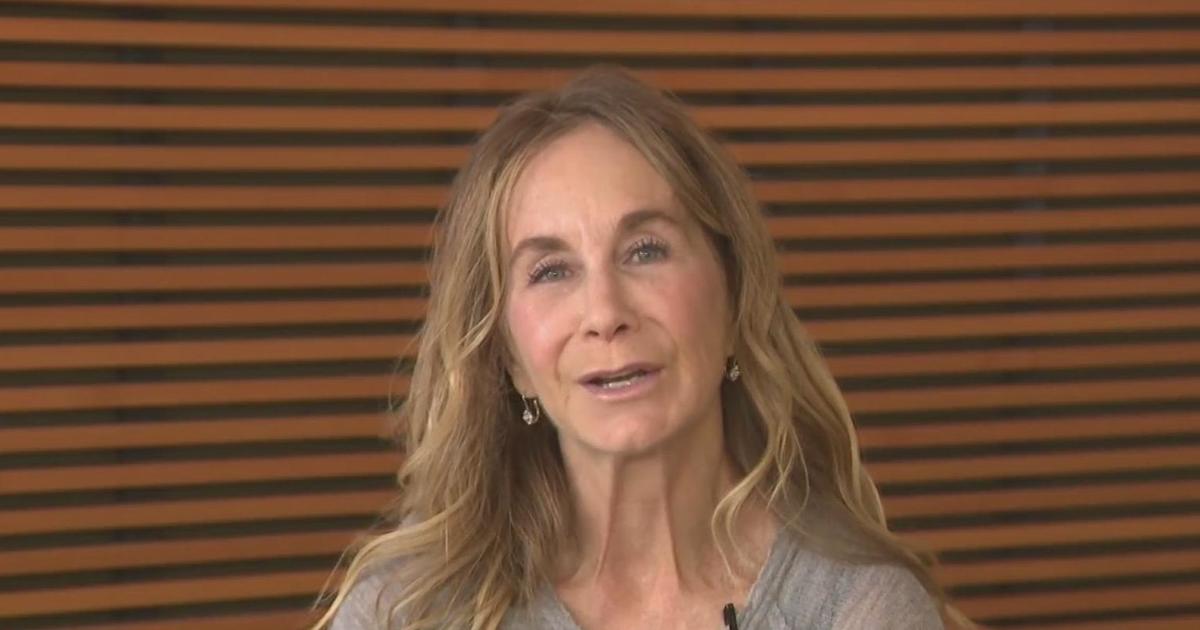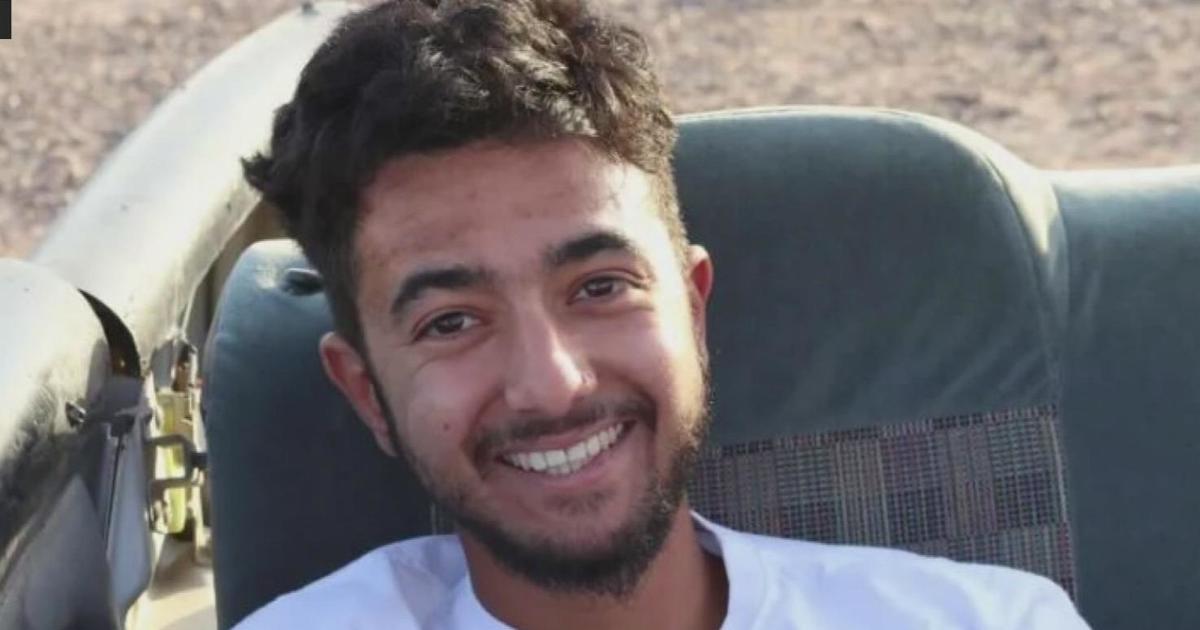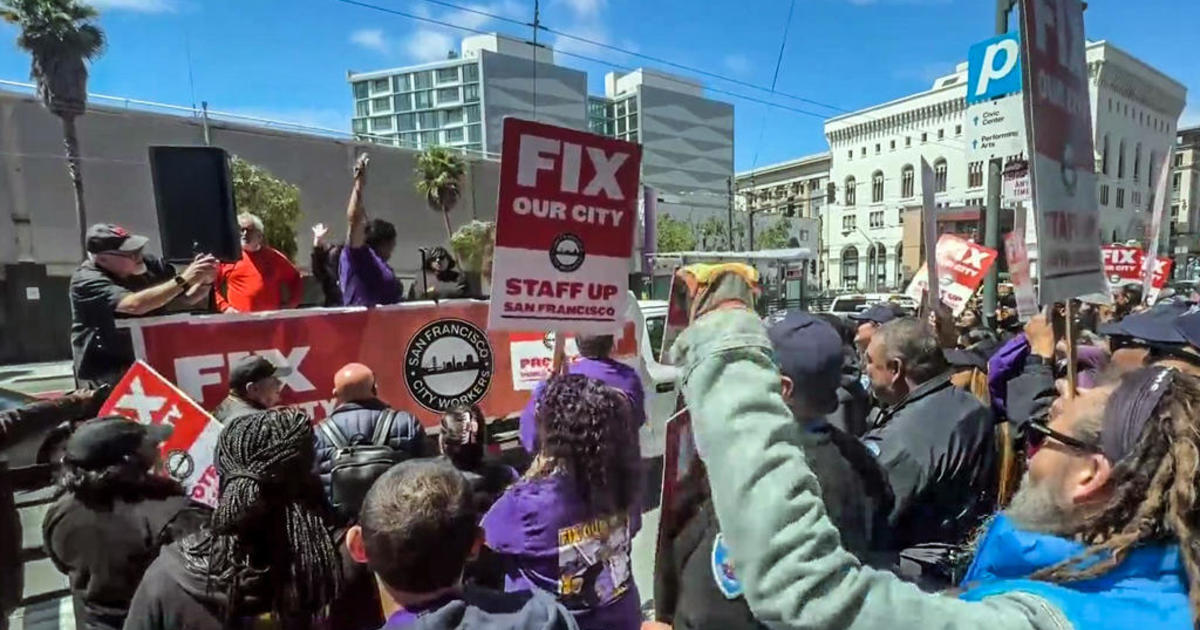Laos Refugee, Domestic Violence Survivor Becomes Honors Student
SAN PABLO (KPIX 5) - Dinnertime at the Saephan home is bustling, with 9 people to feed, including parents, teenagers, a wiggly toddler and newborn baby. Tommy Saephan has been living here with his aunt and uncle since middle school. It is exactly what he needed. "They've given me hope," says Tommy. "I think that's the biggest thing they could give to me. Hope."
Hope and a loving, safe home. Watching him laughing and chatting now, it's hard to believe he used to be a withdrawn, scared little boy and a ward of the court, but we'll get back to that in a minute.
Tommy is a senior at Middle College High School where he is an honors student and Student Body President. The school is located within the Contra Costa Community College campus and Tommy will get an Associate's degree in Math and Science at the same he graduates with his high school diploma. That would enable him to start college in the state system as a junior. "I believe my family sees me as I guess the end of the cycle of poverty that my family has been experiencing," he says.
His family members are Mien – a tribal group that fought with the United States during the secret war in the mountains of Laos. In their homeland, college was unheard of. His family was able to escape to a refugee camp in Thailand, where conditions were so difficult, his grandmother lost four children. From there, they immigrated to the United States.
For Tommy, school is not just a privilege. It was a safe place to get away from the fighting between his mother and her boyfriend. "They were always head butting and it was a battle zone," he says. When they were in their bedroom, he could hear it. "Screaming, loud thumps, my mom crying, I heard that quite often."
Tommy's father abandoned his family and later, the abusive boyfriend and the drugs moved in. It got bad enough that Tommy moved out with his grandmother for a year, before 7th grade. He returned home when the boyfriend was jailed for drug trafficking but when the boyfriend got out, the pattern started again.
You don't have to be the one hit to be hurt. A growing body of research on children exposed to domestic violence consistently shows, that the child may experience a range of problems. A federal government publication on child welfare lists some of the possibilities: "aggressive and antisocial behavior, depression, anxiety, hostility, oppositional behavior, and disobedience; fear and withdrawal; poor peer, sibling, and social relationships; and low self esteem. "
Tommy says he felt many of those symptoms. He withdrew, locking himself in his room and shutting it all out. Eventually, he would even take his meals in there to eat alone. He was depressed and he was scared.
Unlike many kids in his situation, Tommy was able to focus at school. He became more and more active in school activities. "In the eighth grade, I never wanted to go home I'd go home at 5. I'd find every reason to stay at school," he says.
Uncle Kau and Aunt Valerie had been concerned about Tommy for some time. They baby-sat for him and his little sister often. Valerie remembers one time when she picked him up from elementary school; he was wearing his mother's shirt, and mismatched shoes. "It broke my heart," says Valerie. Later, they did everything they could to support his school activities.
But for years, the domestic violence was one of those secrets that people suspected but didn't discuss. When Tommy was in middle school Kau and Valerie tried to ask him what was going on. "I remember when we would try to talk to him about his mom. And once he said "my mom", and that's it, he'd start crying," says Aunt Valerie. "He was very sad".
Then, one day when he was 12, Tommy came home from school, opened the front door and saw the physical violence he had only been hearing up to that point. "His hands were on her throat and he was screaming at her. And I remember a couple days before he threatened to kill her if she ever called the police." Tommy still looks shaken as he describes it, the picture still vivid in his mind.
He told his uncle and Child Protective Services stepped in.
"Seeing someone you love so much get hurt and not being able to do anything about it. I guess that's what hurts the most," says Tommy, reflecting. He thinks his mother's acceptance of the abuse was cultural: "how a woman is supposed to live her life," he says. "She thought it was okay that her boyfriend hit her. Her boyfriend was in control of her life because that's what she'd seen all her life."
The boyfriend was eventually incarcerated but for drug trafficking, not domestic abuse.
Tommy's case is typical of many kids who are removed from their parent's care and placed into the foster care system. "They're mourning from day one," Says Dr. Prudence Carter, an author and professor at Stanford University. "They want their mother or their father…they're grieving and they actually need to be in some counseling if they've been exposed to violence…All foster care kids for the most part come with trauma because you're taken away from your biological family."
This is where Tommy and his sister differ from so many less fortunate foster children. They had family who loved them and there was never any question that Kau and Valerie would take them in. They could not have chosen more appropriate or sympathetic parents.
Uncle Kau could see himself in Tommy. A generation earlier, he also watched his mother being abused by a boyfriend after his father left them. He remembers "junkie people in and out of the house, living in poverty and a dirty house."
Kau didn't want his nephew to go through that. " No child should have to go through that," he says.
Tommy's Aunt Valerie grew up in foster care and had been separated from most of her siblings except one sister who lives with her today. She understood the importance of keeping siblings together. "It hurts," she says. It still hurts". She knows too well how alien and frightening it can be for children to be with strangers.
"Being in foster home, you don't know the word love. No one ever says it to you. The only love I experienced was my sister who would say, I love you," she says.
In the Saephan home, the violence ends and for Tommy, the love grows healthy.
"They always tell me they love me. Every night, they say good night tommy I love you." He learns how a couple can problem solve and talk by watching his guardians.
And he's learning to bring everything out into the open. No more secrets. Valerie explains, "we started doing this thing where we talked every week and it wasn't one on one, but we talked as a family."
Tommy's focus now is on college. His uncle says, "it would be such an honor and we would be so proud to see him go to a university."
"With education I can do anything be anybody I want and I truly believe that," says Tommy. He wants to be a doctor.



